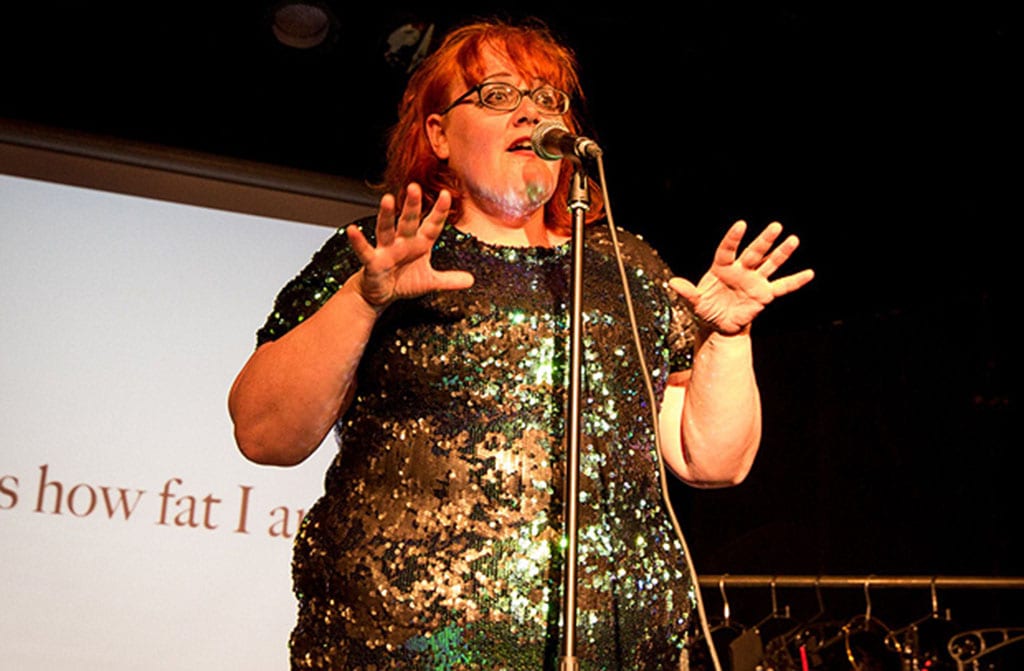What a touching piece Mathilda Gregory’s reflections on being a fat woman is. Being fat or other people’s fatness is a sensitive subject for some, so much so, she tells us, that flyering for her show can be quite a challenge. She doesn’t know whether to approach fat people about it, in case they take offence, and thin people seem to find being confronted with the subject of her body a little too uncomfortable. She reassures us at the start that she is ok with being fat, otherwise why would she make a show about it?
The show is underplayed cabaret in aesthetic, with Gregory dressed in sequins and audience seated in the style, yet it’s more akin to a TedX Talk in manner. She’s immensely likeable, and a guffaw-worthy, observant writer. Advice for those who want to start the difficult conversation about someone being fat includes shouting it out of a moving vehicle. Occasionally the witty self deprecation errs a little close to self mocking, and I fear we might end up in a very different territory to her assured beginning. Her sustained honesty and ability to look the difficult subject in the face, however, ensures that we’re in safe hands.
She walks us through the various diets she tried to research this show, including instagramming everything she ate for a month and the Unilever sponsored Slim Fast! 7 day replacement meal plan. She then attempts to follow her thin sister’s daily food intake only to discover that her sister doesn’t really eat; a fear of not wanting to be fat like her perhaps. In so doing Gregory gently debunks the myth behind The Thin Fantasy; being thin does not necessarily equal an anxiety free life. It’s obvious and yet the myth, like her parents’ cupboard stocking both Slim Fast! And sweets, self perpetuates.
To my mind there’s oversimplification in some of her arguments and a definite avoidance of holistically looking at all the causes for not being able to lose weight, aside from, in her words, diets not working at all. I also can’t be sure she’s not reading the majority of her show from her laptop, which is a little distracting.
Conversely, this warmly confessional piece also manages to reflect well on the complexities of the topic. Despite the recent trend for body-positive advertising, Gregory tells us the curves they want us to celebrate do not include the curve of her belly and she’s ashamed of it. A result of our not-so-subtle cultural norms which expect people with larger body types to apologise for being fat. Ultimately, she’s doing what is so important if these norms are to change in talking about it. The hope is, post show, we’ll do the same.

